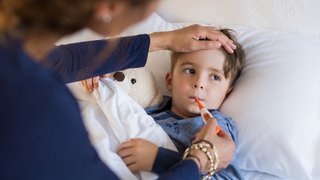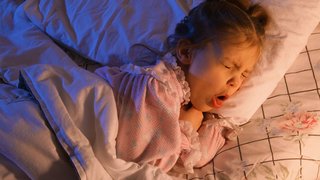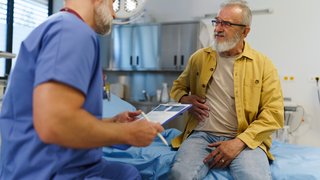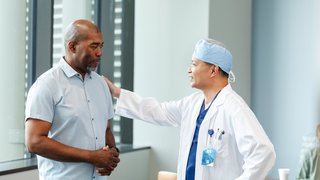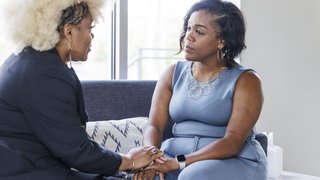
Socorro Chamblee seemed destined to become a doctor – from her precocious childhood days following mom around at her ob/gyn office, to her “nerdy” tween years devouring medical journals in Mississippi, to enrolling at Johns Hopkins University as a pre-med student at the age of 17.
A career in medicine was her calling.
In some respects, being a doctor is also the family business.
Her mother and sister are Ob/Gyns, and her brother-in-law is an anesthesiologist. They were all instrumental in persuading Dr. Chamblee and her husband to relocate to McKinney in 2003, where she spent 16 years in private practice.
In December, she joined another family – the otolaryngology team at UT Southwestern to help launch the new Frisco specialty care facility, where she is already treating a steady stream of adult and pediatric patients.
Dr. Chamblee took a few minutes out of that busy schedule to reflect on her personal and professional journeys, and how having a hearing-impaired son has helped make her the empathetic specialist she is today.
Tell us a bit about your background.
“I was born in the Philippines and spent my first six years there in a suburb of Manila. Then we started moving around thanks to my dad’s diplomatic career, while my mother was a practicing ob/gyn. We went to Guam for four years, New Orleans for two, to the town of Waveland on Mississippi’s Gulf Coast – living in a house that would later be destroyed by Hurricane Katrina."

“I was very academic, rather nerdy, and as a National Merit Scholar I applied to only one school, The Johns Hopkins University, where I was accepted at age 16. Baltimore was pretty far away from where I grew up. I really loved the experience there, but after graduation I decided to move back to the South for medical school at University of Texas in Houston (now known as the McGovern Medical School).”
How did you end up at UT Southwestern Frisco?
“After my five-year residency – one year of general surgery and four years of specialization in otolaryngology – head and neck surgery – I moved to Pittsburgh for a year, where I was fortunate enough to work with and learn from Dr. Helen Krause, the first female president of the American Academy of Otolaryngic Allergy (AAOA). I gained a firm foundation on how to practice ENT allergy there. Then we were off to Peru, Indiana, where we stayed for five years as I developed a hospital-based practice. I loved working in a small town, but when a good friend who had a clinic in McKinney asked me to join him, I couldn’t resist the chance to move closer to my sisters – one of them is currently an Ob/Gyn at Parkland Memorial Hospital, and my brother-in-law is a cardiothoracic anesthesiologist at UT Southwestern. I launched a private practice in McKinney, where I still live, but recently my sister and brother-in-law convinced me to make the move to UT Southwestern, which I did in December. And I couldn’t be happier.”
What drew you to the specialty of otolaryngology?
“Honestly, all anatomy is fascinating. But I’ve always been particularly drawn to everything above the clavicles (collarbones). The ear anatomy alone is so intricate with such an incredible design, and otolaryngology is where you encounter all those great senses of smell, hearing, and taste. In treating ENT conditions, I can often offer patients both medical and surgical treatment options. I always knew I wanted to be a surgeon, and I particularly enjoy performing sinus and nasal surgeries. The specialty also allows me to see patients of all ages, from newborns to centenarians.”
You have a personal connection to ear, nose, and throat conditions, too.
“Yes, my 16-year-old son started to lose his hearing when he was 2. He ended up needing a cochlear implant at age 3. We actually had to learn some sign language because he couldn’t communicate any other way. But now he is completely verbal and fully integrated in a regular school, swimming with his implant in a waterproof case and even playing viola.
“Now, the kind of surgery my son needed can be done by otologists we have right here in our UTSW Frisco clinic. The experience with my son definitely helped me understand what all parents go through when something is wrong with their child. I’ve taken care of patients with hearing loss and told their parents that with all the new resources we have, we can really help a child continue to grow and develop despite hearing difficulties – which is exactly what my son was able to do. In part, his story makes me even more passionate about what I do.”
In private practice, you earned top ratings. How do you connect with patients?
“I LISTEN. I think all doctors should listen to their patients, and I really try to educate them on their condition. I want my patients to understand why I’m making the recommendations I make. I also want my patients to know that I never give up. I really don’t like to use the expression: ‘You’ll have to live with it.’ I do my best to find a treatment that works or at the very least, something that helps make it better.”
“My upbringing also taught me to treat other people with great respect – especially my colleagues and patients.”
What’s been your initial reaction to working at UT Southwestern Frisco?
“Oh, I love it! It is exciting joining a major institution, especially after all those years in private practice. The resources offered by UT Southwestern are so impressive, and I’m particularly excited to expand on the ear, nose, and throat services already available in the area. For example, we have tinnitus specialists right here in the clinic (so our patients with ear ringing won’t have to travel as far for help they need to manage their problem) who could immediately help one of my patients who came in complaining of ringing in her ears.
“Our otolaryngology department is nationally ranked, and in Frisco we are seeing some of the most challenging cases. I love that. Also, as someone who lives in this area, I’m so happy my neighbors and patients no longer have to travel far to get solutions to their medical problems.”


